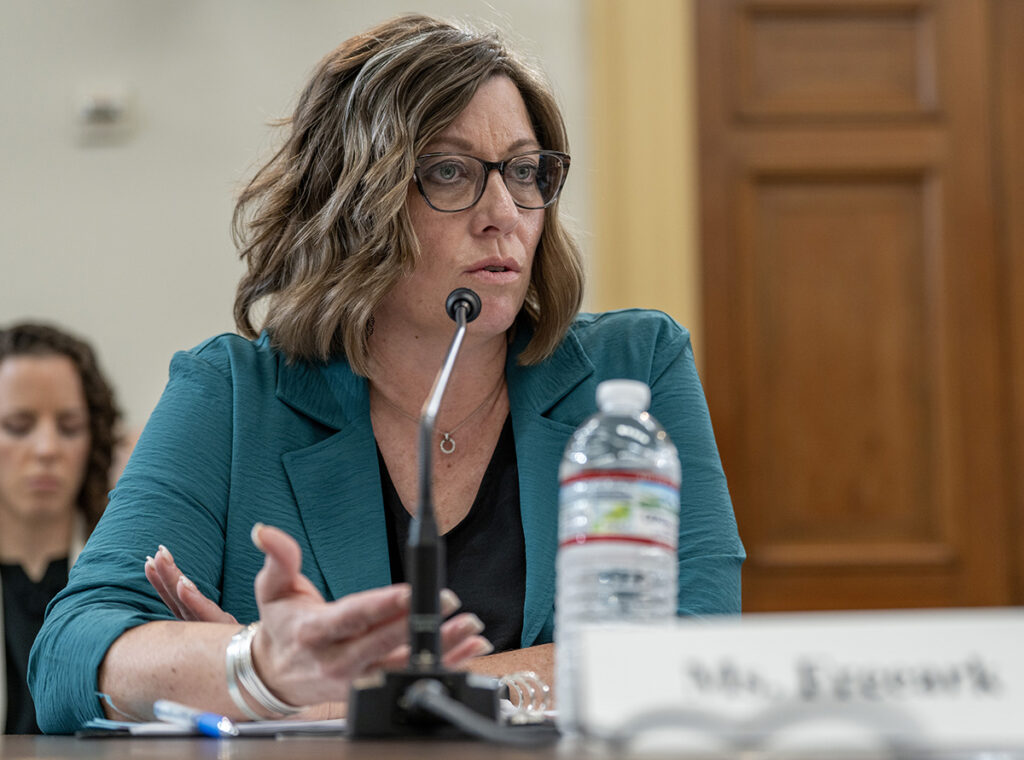
As nationwide demand for electricity skyrockets, a wide variety of energy sources—including coal—are crucial to keeping the lights on, an Arizona electric cooperative leader told a House panel Thursday.
“Communities throughout our service territory experience extremely hot summers that cause a high demand for electricity,” Michelle Freeark, executive director of regulatory affairs and corporate services at Arizona Electric Power Cooperative, told the House Energy and Commerce Subcommittee on Environment.
“Energy market prices often soar due to high demand or during adverse reliability events, such as wildfires.”
The ability to use coal as part of its energy mix ensures that AEPCO can meet summer demand at affordable rates, she testified at the hearing on the beneficial uses of coal ash.
“The cost of electricity is of particular concern to AEPCO because roughly one-third of our members’ residential consumers live below the federal poverty line,” Freeark said.
The generation and transmission co-op, which serves distribution co-ops and other customers in Arizona, California, Nevada and New Mexico, is building new natural gas units and solar-plus-battery energy storage systems to expand and diversify its generation portfolio, Freeark said.
“Renewable energy sources … can play a strategic role in the Western energy grid, but reliable and dispatchable generation sources, including coal and natural gas, are necessary to carry out our mission of providing safe, reliable, competitively priced power to electric co-ops in the Southwest,” she said.
“Coal also offers energy security benefits because the fuel is readily available on the ground as opposed to pipeline fuel or intermittent renewable resources.”
The Benson-based co-op owns and operates a coal-fired generating facility, Apache Generating Station, in Cochise, Arizona.
Freeark said a regulation known as the “legacy rule” that was finalized last year by the Environmental Protection Agency to regulate coal ash “adopts a one-size-fits-all approach that is not supported by EPA’s risk analyses and will result in massive costs to the utility industry.”
“These costs will eventually be borne by rural end-users in cooperative service areas. EPA’s approach and the associated costs and regulatory requirements will exacerbate challenges to the reliable delivery of electricity.”
Freeark commended the EPA’s recent decision to reconsider the coal ash rule and said the co-op hopes to work with the Trump administration “to develop workable and cost-effective revisions.”
“In the meantime, we support an immediate delay of the legacy rule compliance deadlines,” she said.
Freeark said AEPCO’s Apache coal-fired plant has worked closely with the EPA over the years to comply with regulations for disposing of coal ash. A majority of the fly ash is sold to a tribal-owned entity, which recycles it into cement.
“By doing so, AEPCO reduces the amount of [coal ash] that is disposed in its regulated impoundments,” she said. “AEPCO supports this safe, alternative use of coal ash.”
Freeark cited a recent report by the North American Electric Reliability Corp. forecasting that, over the next five years, all or parts of several states are at high risk of rolling blackouts during normal peak conditions.
“Flawed public policies that force the premature closure of existing power plants are a big reason for this threat.”
Erin Kelly is a staff writer for NRECA.